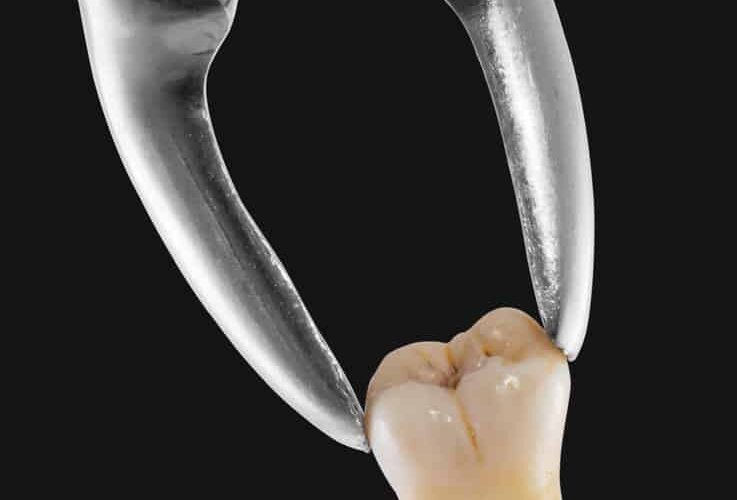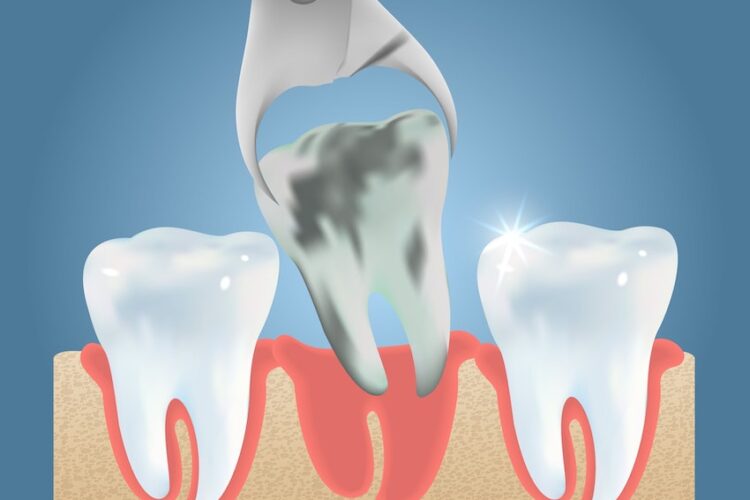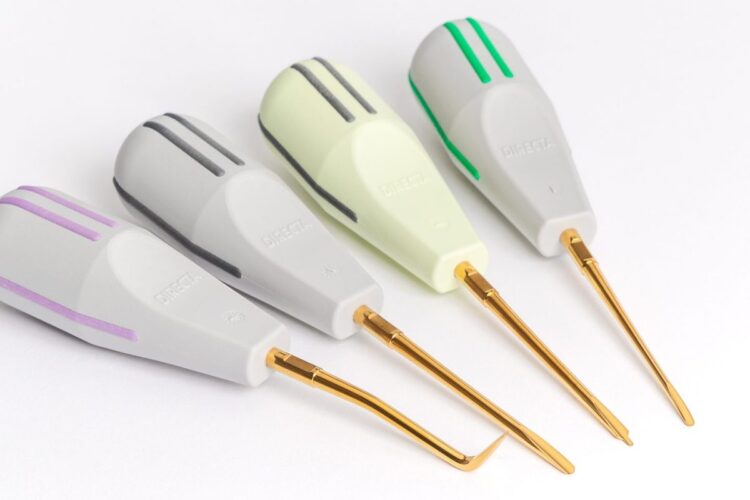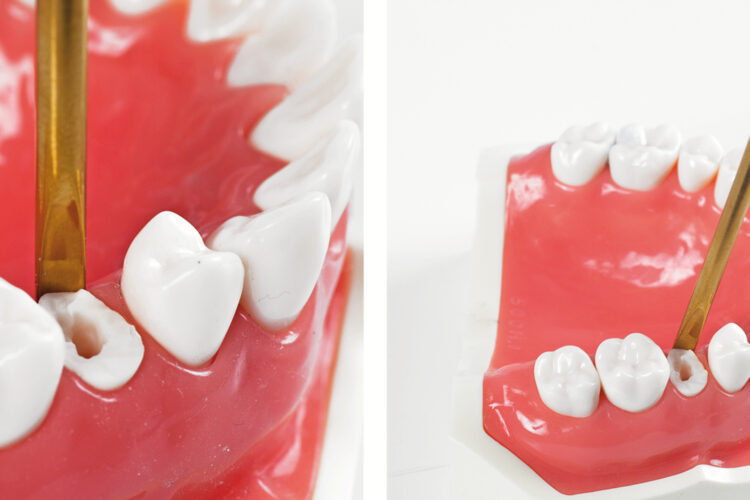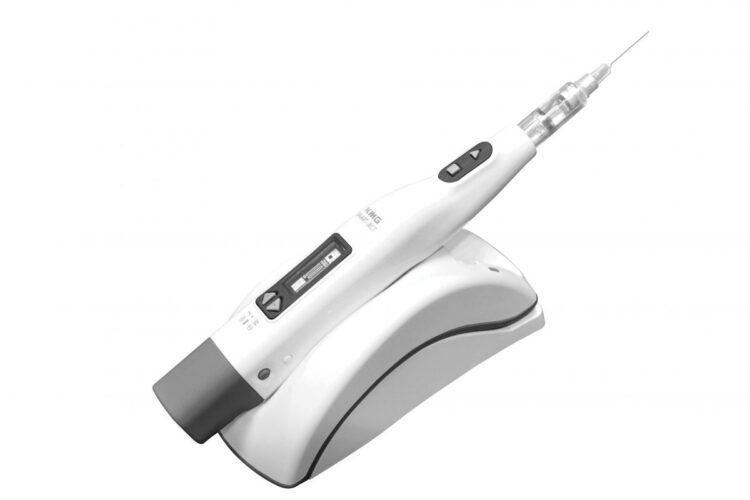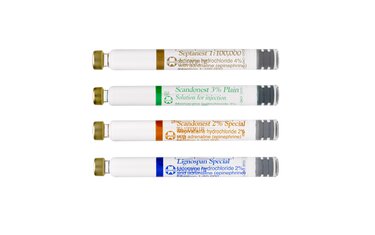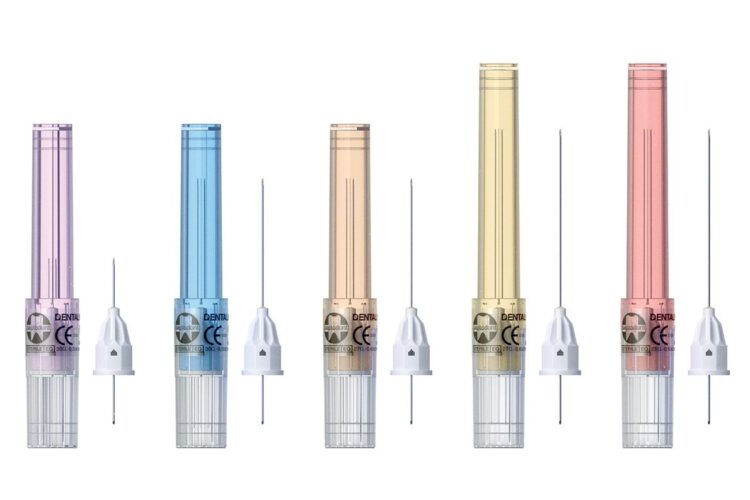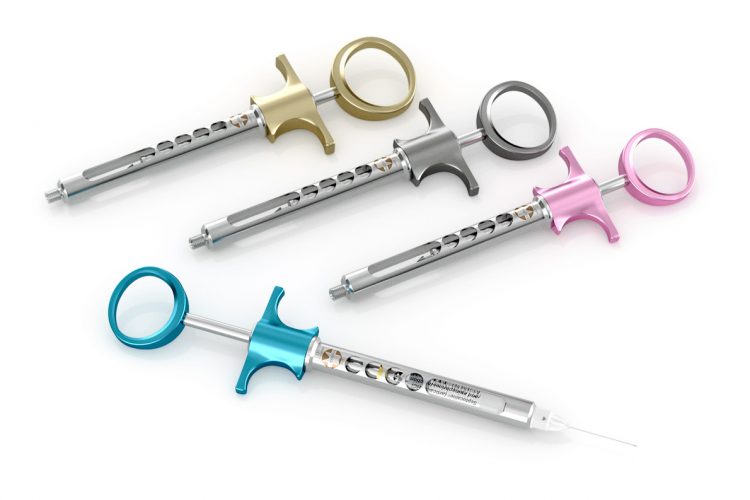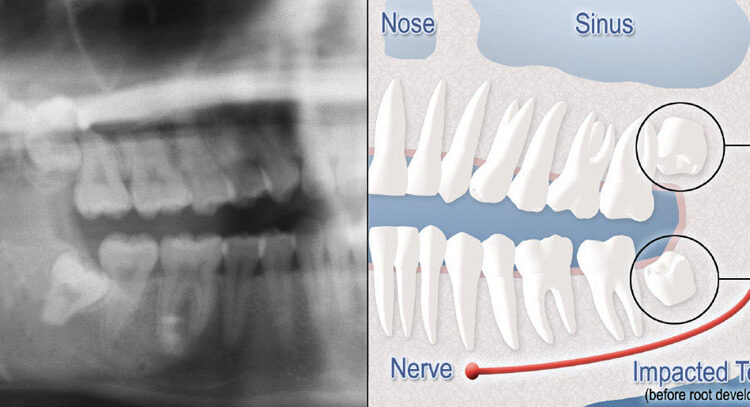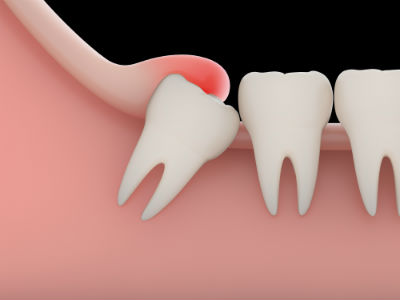Removing the tooth is called as “Tooth Extraction”. Badly damaged tooth and root with dental caries, erosion, attrition, fracture tooth or periodontal infection that cannot be saved by any mode have to be removed. Third molar tooth are most of the time extracted.
Tooth extraction is done under local anesthesia with Lignocaine/Articaine. After few minutes the area where the tooth to be extracted becomes numb. The dentist checks whether the area is numb and then proceeds for tooth extraction. So it is normally done without pain, but you can feel the pressure while extraction.
Wisdom tooth
There are 32 permanent teeth for normal adult. Third molar tooth called as Wisdom tooth erupts around 18-22yrs of age. As its last to erupt it has less space for it. Most of the time, it erupts in different angulations and gets buried in the jaw bone. Due to improper position, it catches dental caries (decay) or gum disease frequently and early. Or if it does not erupt, at times it forms a dental cyst inside the jaw bone. Most of the time it is removed by a simple extraction or by minor surgery if it is buried in the bone (impaction).
SURGICAL EXTRACTION
Impacted teeth are removed by surgical extraction in which bone surrounding the tooth is removed and the tooth is extracted. It may require a suture which helps in healing. Suture can be removed in one week. Sometimes an absorbable sutures are placed. It is usually performed under local anesthesia.
Medical history:
If the person undergoing tooth extraction is diabetic or hypertensive, it should be controlled with proper drugs under a physician’s guidance. If he or she is a heart patient say eg., a recent attack of myocardial Infarction (heart attack), they should get the fitness certificate from a physician for tooth extraction.
Also if any long term drugs for any disease is taken or he/she has any disease of vital organs like kidney, liver, brain, lungs, should also have the fitness for tooth extraction from the attending physician in a written manner.
Complications:
If the wisdom tooth is very close to the nerve, there might be a chance of temporary numbness in the lips or cheeks. This is called transient parasthesia. Your dentist will give you medication and regular follow up needed till it becomes normal. This time period may vary from few days, few weeks or few months depending on the severity. Rarely, there might be permanant numbness too.
Instructions to be followed after extraction:
1) After tooth extraction, usually a sterile cotton ball packed in a gauze is asked to bite firmly in the tooth extracted place for atleast ½ an hr. So that, due to the pressure bleeding stops and a clot is formed.
2) One should not spit or gargle after tooth extraction
3) One should not take hot food (solid / liquid) on that particular day after tooth extraction, as it prolongs the bleeding time which delays healing of the wound. But any colder drink or semisolid (ice cream) can be taken on the day of extraction as it helps in blood clotting. One should not use a straw to take any liquids, as the negative pressure created in the oral cavity during this increases the bleeding in the tooth extracted place and also disrupts the formed blood clot, which also delays the healing.
4) Smoking / alcohol are strictly to be avoided atleast 3-5days after tooth extraction. Smoking by its inherent heat disrupts the blood clot and alcohol interferes with the antibiotic drug metronidazole and there by induces dizziness and vomitting.
5) Ice fermentation to be given over the extracted site extraorally, for 24 hours
6) Warm salt water/ mouthwashes used after the day of tooth extraction fastens the healing and also maintains an antibacterial and sterile area around the tooth extracted place.
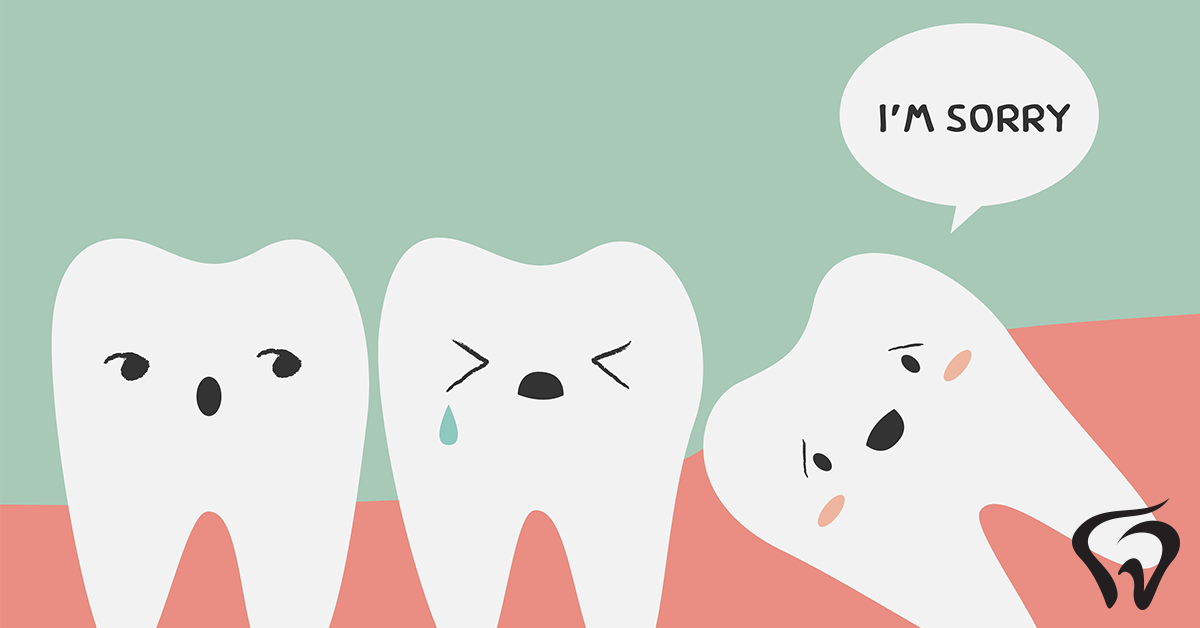
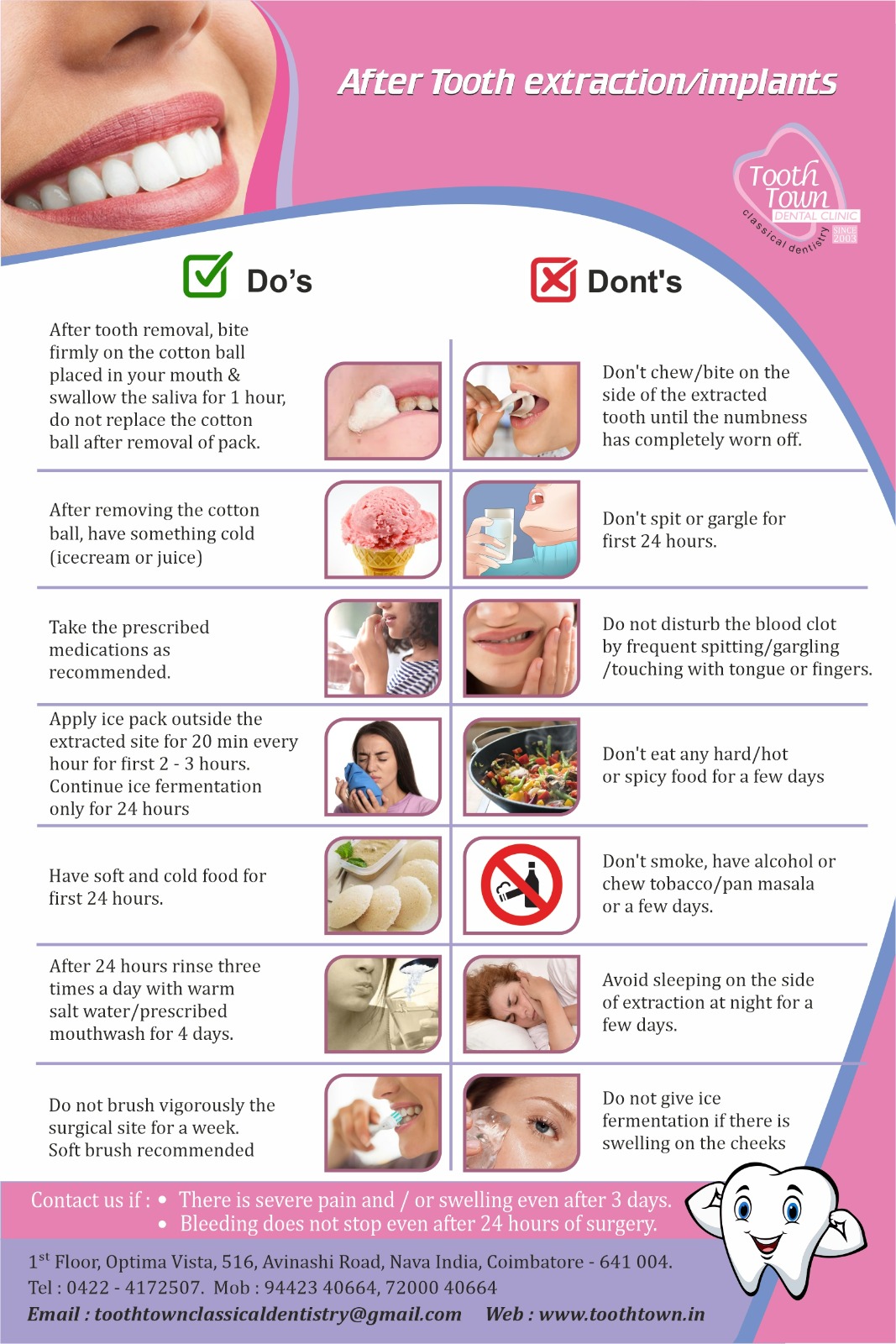
Clear Your Doubts
Tooth extraction is done under local anesthesia with lignocaine. After few minutes the area where the tooth to be extracted becomes numb. The dentist checks whether the area is numb and then proceeds for tooth extraction. So it is normally done without pain, but you can feel the pressure while extraction. We use Topical Anesthesia, Cartridge Anesthesia and Digital Anesthesia , where the anesthesia is in preloaded closed sterile cartridges, the needles are extremely thin and the material is controlled digitally while injecting making it almost a painless injection.
Yes, if multiple teeth has to be removed or if you even don’t want to feel the pressure during extraction of the tooth, extraction can be done in a hospital set up under general anesthesia.
There are 32 permanent teeth for normal adult. But most of the time the wisdom, third molar tooth erupts in different angulations in the jaw bone as there is less space for it or it does not erupt at all and gets buried in the jaw bone. So the wisdom tooth as it erupts around 18 – 22 yrs in a different angulation it catches dental caries (decay) or gum disease frequently and early. Or if it does not erupt, at times it forms a dental cyst inside the jaw bone. Most of the time it is removed by a simple extraction or by minor surgery if it is buried in the bone (impaction). Two or more Third molar tooth can be removed under general anesthesia without much of discomfort.
If there is a gum infection or decay in third molar which is in proper alignment, the dentist tries to save the tooth for better chewing and arch alignment. But if 1 or more 3rd molar have infection or its prone for infection later, the dentist plans to do remove all the third molars.
If a Lower third molar on the left side has got an infection, normally the upper third molar is also been removed with that, so as to prevent the problems that arise from the supra eruption of upper third molar due to the absence of lower third molar
Normally, a malpositioned third molar without any signs of infection is also removed when we are young, say below 30yrs, as the age advances there are more chances to develop debilitating diseases such as diabetes, hypertension and heart problems, and at that time if we want to remove the wisdom tooth it takes time to heal or also we may not be fit enough to undergo the wisdom tooth extraction. So it is always earlier the better as we plan for extraction.
Yes. If we are planning for Implant placement for restoring lost tooth, then we should decide prior itself. In these cases, a specific method of atraumatic tooth extraction with special instruments like luxators and periotomes are used to conserve maximum bone.
Yes, if the person undergoing tooth extraction is diabetic or hypertensive, it should be under control with proper drugs under a physician’s guidance. If he or she is a heart patient say eg., a recent attack of myocardial Infarction (heart attack), they should get the fitness certificate from a physician for tooth extraction.
Also if any long term drugs for any disease is taken or he/she has any disease of vital organs like kidney, liver, brain, lungs, should also have the fitness for tooth extraction from the attending physician in a written manner.
Aspirin or warfarin like blood thinners used prophylactically to prevent heart blocks are to be stopped 3 -5 days before tooth extraction with the physician guidance. If taken during the day of extraction, it prolongs the bleeding time after tooth extraction.
Antibiotics, commonly amoxicillin and metronidazole for anaerobic tooth infection are given for 3- 7days during the time of tooth extraction to prevent getting infected and also to prevent the spread of infection if there is any already.
Pain killers like NSAID’s, non steroidal anti-inflammatory drugs are given after tooth extraction, as and when required.
Ice fermentation to be kept over the cheeks near the extracted site when a surgical removal is performed. It has to be kept 5 to 10 minutes every half an hour upto 24 hours. This reduces the development of swelling greatly, helping in faster post operative recovery.
- Friendly Doctors
- Comfortable Office
- Affordable Pricing
- Family Friendly
- Convenient Location
- Little to no Wait Time
- Detailed Consultation
- Satisfaction Guarantee
- Accessibility
- Modern Equipment
- High-Quality Materials
- Best Treatment

